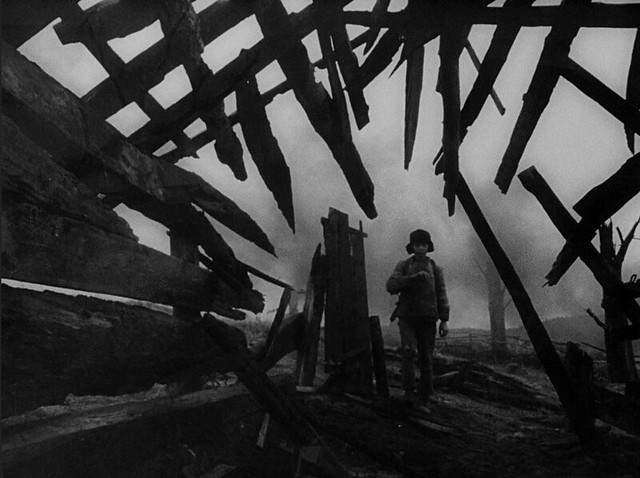
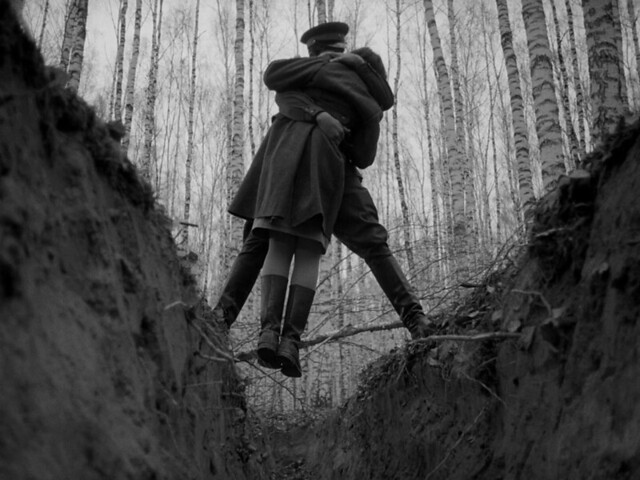
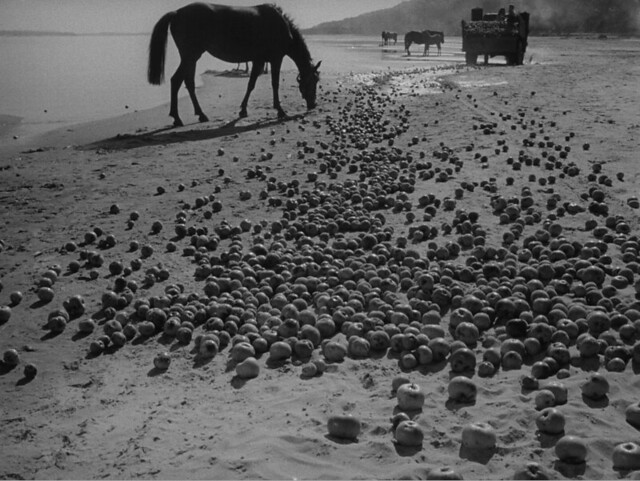
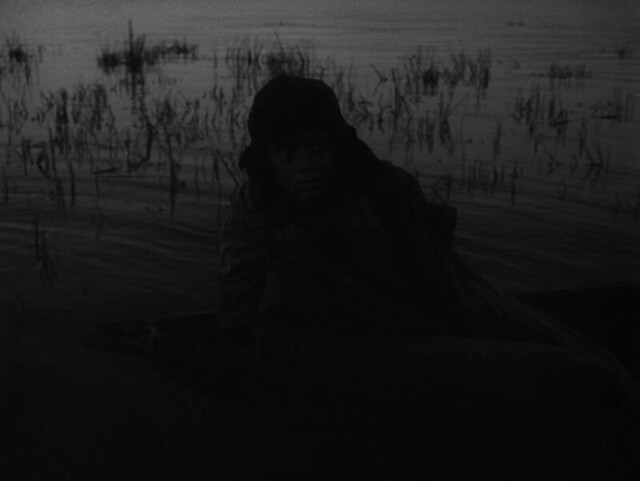
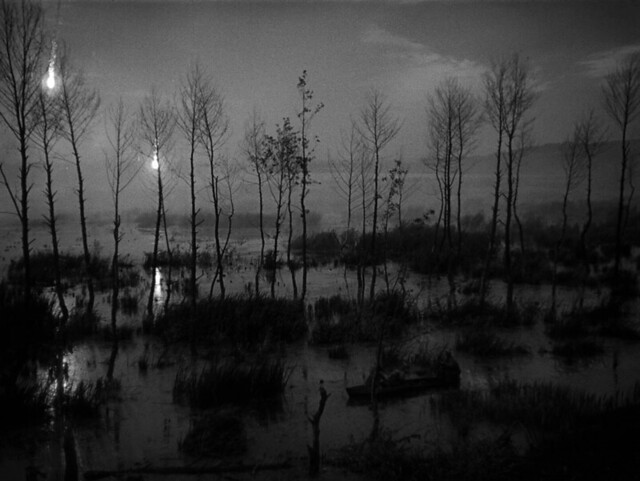
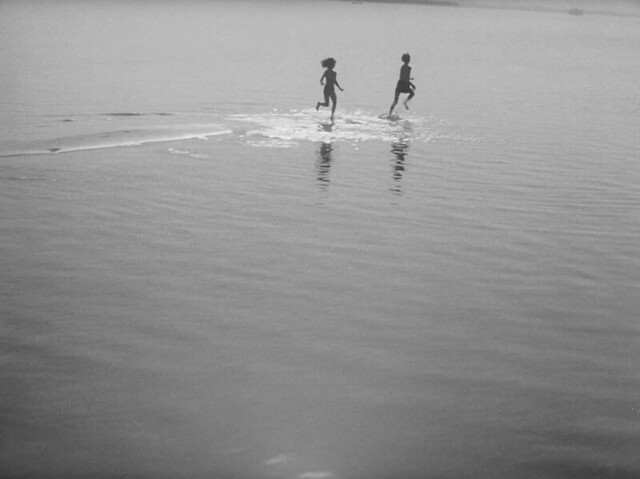
The film starts with an impressive crane shot of young Ivan (Nicolay Burlyaev) playing in the piney forest. It's all idyllic and whimsical. This is what this young man dreams of when he closes his eyes shut for brief nap while scurrying around the burnt out surroundings and murky swamps of the WW2 frontline. He is volunteering reconnaissance work- because he is small and nimble, he crosses the river to the German side and report back to the Russians with the enemy's movements. The last one was a tough one and Ivan is exhausted mentally and physically. The young lieutenant Galtsev (Evegeni Zharikov) who took him in after such mission, not knowing who the kid was and what he was up to, voices his opposition to the idea of child soldier to his superiors. Kholin (Valentin Zubkov), a veteran of war and Ivan's friend agrees that Ivan needs to be sent to the military school or boys home, far away from the war front. But he also knows that Ivan's going to run away eventually and end up in the war front. Ivan's mother and sister was killed in the war and he has only one thing in his mind - vengeance. No one can stop him.
After Ivan runs away from the Military school and ends up on the front, Kholin, Galtsev and the boy decides to go across the river for yet another dangerous mission. In the middle of it, they realize that Ivan is the only one small enough not to get caught and they let him go alone for the mission.
Ivan's childhood is a staggering debut of Andrei Tarkovsky. In it, his signatory visual prowess in the later films is evident here. The measured framing and dolly and crane shots are out of this world! The brief romance in the white birch forest between Kholin and military nurse Marsha (Valentina Malyavina) are lyrical and breathtakingly beautiful. The seemlessness of editing and transition from dreams/flashbacks to reality, especially the Ivan and the mother in the well is just astonishing. The point of view change from Ivan then later to Galtsev is also very impactful- the war burden is on the survivors to witness the devastation of the innocents, not the innocents themselves.
Tarkovsky knows that he doesn't need to put emphasis on the theme of child soldiers and women in war. Earlier scene with Ivan writing down what he learned from the mission counting different seeds he collected and sending them in envelopes suggests that his recons might be a fool's errand that the superiors are letting the war scarred child play his spy games however irrelevant to the realities of war. In fact, there is knowing looks and smiles exchanged between adults when they talk about him. But Ivan's Childhood is not overtly melancholic or dramatic. The evidences of the war themselves - photographs of the war dead, of the defeated - photos of laid out bodies of Goebel's young daughters who were poisoned by him before he killed himself after Germany's surrender, speak volumes already. It ends in one of the most aching scenes of film history - eternal summer on the beach with the tracking shot that seems to go on forever. It's a beautiful film.